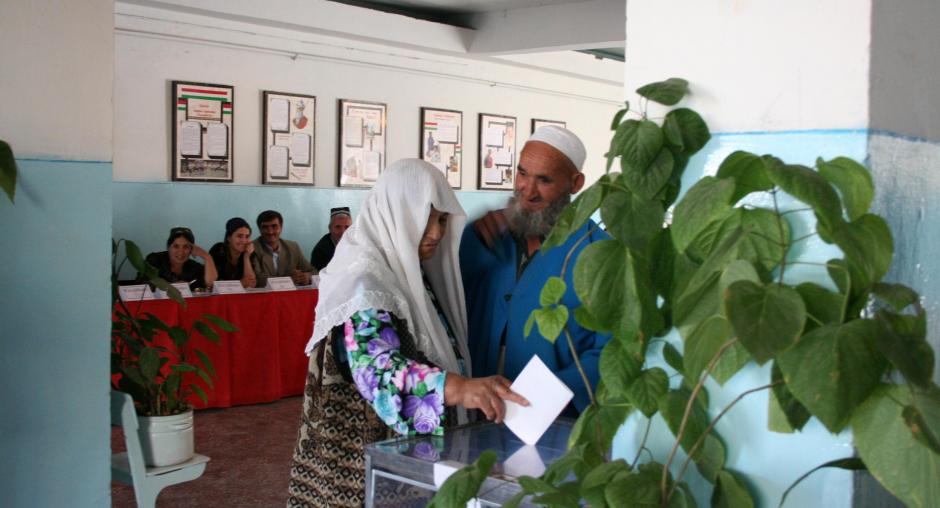Tajik democracy not fully tested in uncompetitive presidential election

DUSHANBE, 7 November 2006 - Democratic practices were not fully tested in the 6 November presidential election in Tajikistan due to the absence of genuine competition, thus providing voters with only nominal choice, concluded the OSCE Election Observation Mission in a statement issued today.
"The lack of any serious campaign and credible alternatives undermined this election to a degree that it did not provide an adequate test of Tajikistan's commitment for democratic elections. A range of other shortcomings were also evident in the electoral process," said Kimmo Kiljunen, Head of the OSCE Parliamentary Assembly Delegation and Special Co-ordinator of the OSCE short-term observer mission.
Onno van der Wind, Head of the long-term Observation Mission deployed by the OSCE's Office for Democratic Institutions and Human Rights (ODIHR), added: "While this election marks some improvement, there was an insufficient framework for genuine democratic elections, which Tajikistan, as an OSCE participating State, is committed to do. I call upon the Tajik authorities to implement previous OSCE/ODIHR recommendations that address these issues."
The legal framework and a number of technical aspects of the electoral process require significant improvements. This includes the requirement to collect signatures of five per cent of the electorate in support of candidacy and lack of transparency in the decision-making process of the highest level of election administration.
The campaign was almost invisible, with media coverage concentrating on the incumbent in his role as president. In a welcome initiative all candidates were offered free airtime and print space in state media. They did not, however, use this opportunity to its full extent.
The election took place in a peaceful environment and was efficiently administered. However, observers noted serious shortcomings during polling, including widespread family voting, proxy voting, multiple voting, and identical signatures on voter lists. Despite training provided to officials, voting and counting procedures were often not followed and the turnout in places was improbably high.
Some 170 international observers from 32 countries observed the voting and counting on behalf of the OSCE/ODIHR and the OSCE Parliamentary Assembly.
